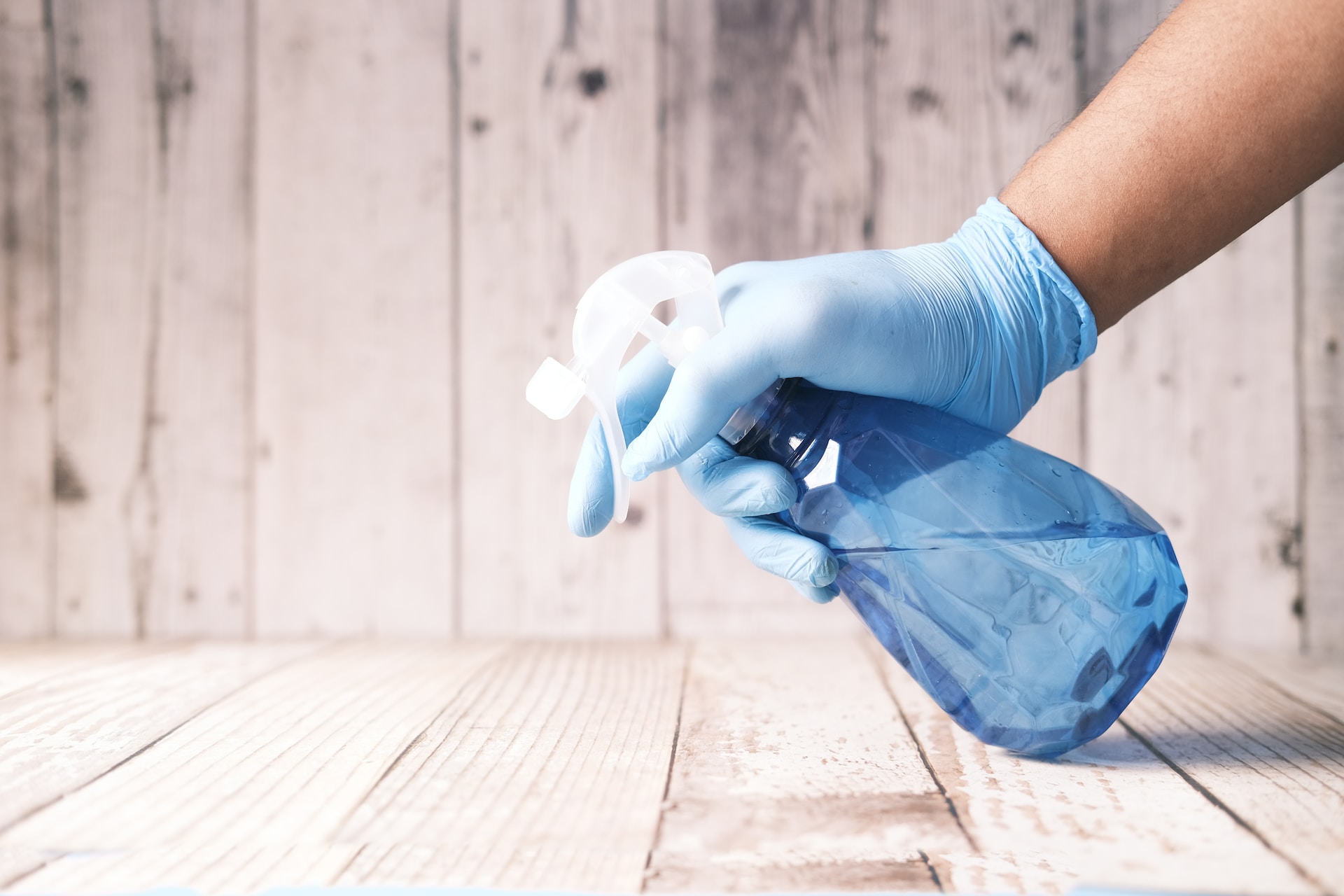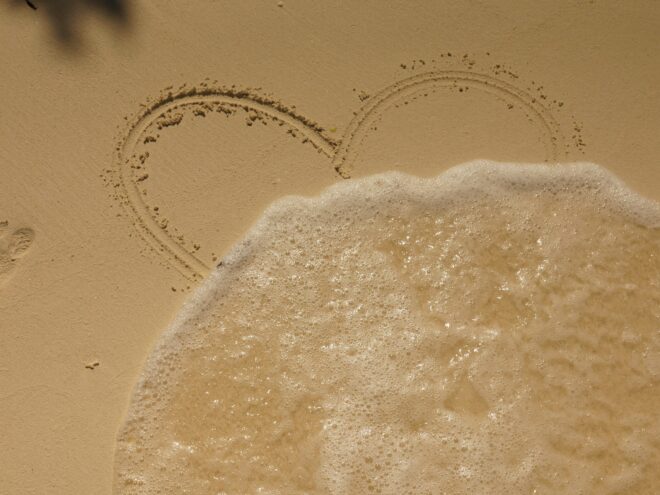Style • 07/08/2023
How to Make a DIY Floor Cleaner for Different Floors

Revivalist is a reader-supported endeavor and our posts may contain affiliate links. When you buy through links on our site, we may earn an affiliate commission.
With inflation and expenses racking up one after the other, now is the best time to stay practical and look for ways to save money. The best thing is these ingredients to formulate your DIY floor cleaner are kitchen staples. You don’t have to spend another dime restoring the beauty of your wood, vinyl laminate and tile floors.
DIY Floor Cleaner for Hardwood Floors
Wood floors give your home a stylish, beautiful and timeless finish. They’re a favorite of interior designs because they’re durable, easy to maintain and never go out of style.
Installing wooden flooring is a long-term home investment. So if nail polish remover, chlorine or alcohol spills onto the floor, it can feel devastating. But there’s a solution — you can create a DIY floor cleaner to restore the glory of your wood floors. Choose between these two cleaners.
Water and Vinegar
Mix three parts water with one part vinegar. Before you begin cleaning, find a corner spot to test the solution. Check if it dulls the floor finishing. If it’s safe, you can proceed to mop the floor.
Vinegar has natural disinfectant effects that can sanitize various home surfaces, including countertops. If the mixture reacts with the type of hardwood floor you have, try this second solution.
Black Tea
Drop at least three black tea bags into a pot of water and bring to a boil. Steep for 15 minutes and let it cool before use.
Besides being the favorite of many, black tea is also an excellent wood floor cleaner. It has tannic acid that acts as an astringent. It’s a milder type of acid compared to vinegar. People have used it for centuries to remove grime and polish hardwood floors.
DIY Floor Cleaner for Vinyl and Luxury Vinyl Plank Floors
If cared for properly, vinyl floors can last up to 25 years. They’re an investment, but vinyl is effortless to maintain and durable. Some vinyl is water-resistant but not completely stain-proof. Juice, wine or tomato sauce may leave difficult-to-remove stains on the floor. If you want to skip commercial cleaners, here’s how to make a DIY vinyl floor cleaner.
White Vinegar and Water
Boil one gallon of water and add a cup of distilled white or apple cider vinegar. Let the mixture cool before using it. Vinegar can help remove bacteria from vinyl floors while leaving them clean and shiny. Feel free to add a few drops of citrus, eucalyptus or lavender essential oil to mask the vinegar’s smell.
DIY Floor Cleaner for Laminate Floors
Some people prefer laminate flooring because it’s scratch and impact resistant. It doesn’t fall short of hardwood floors regarding quality, durability and style, yet it’s more affordable and straightforward to install.
The surface of laminate floors has an aluminum oxide coat, so they’re naturally glossy and stain proof. Still, regular maintenance is necessary to remove dirt and dust and retain the floors’ natural shine for a long time. Here are options for concocting a homemade cleaner for laminate floors.
Clear Dish Soap and Water
Mix one teaspoon of unscented dish soap and one gallon of hot water. If you’re cleaning a small area, use a soft towel to wipe away the stains on the floor. Otherwise, grab a mop and dampen it with the soapy solution to remove dirt from a bigger area.
Water and Vinegar
Combine a gallon of hot water and one cup of white vinegar in a bucket. Use the formula to remove waxy and sticky buildup on the floor. Dip the mop and wring it before cleaning the floor.
DIY Floor Cleaner for Ceramic Tile Floors
Except for the harder surface, ceramic tiles are versatile and benefit several homeowners. They’re water resistant, require low maintenance and are tough. They can last for hundreds of years if installed correctly and properly cared for. Ceramic tiles are also cost effective since replacing a single cracked tile is easy.
Generally, tiles are easy to clean, but some products — like ink, nail polish and grease — can leave permanent marks on the surface. Here are a couple of homemade cleaner options for tile floors.
Water and Distilled White Vinegar
Add a cup of distilled white vinegar to one gallon of warm water. Feel free to replace white vinegar with apple cider vinegar if it’s more accessible. When cleaning a larger area, increase the solution by adding more vinegar and water, following the ratio.
Baking Soda, Vinegar and Water
To clean stained grout lines, mix one part warm water and one part vinegar. Shake it well and transfer to a spray bottle. To clean, dust a thin layer of baking soda into the grout. Spray the mixture and let sit for 5 to 10 minutes. There will be a foaming chemical reaction. Wait for this to disappear before you scrub with a soft-bristled brush.
What Is the Best Homemade Floor Cleaner?
The best DIY cleaning solution for your floor depends on the type of flooring you have at home. Vinegar is an all-purpose cleaning remedy for grimy and stained floors. You can dilute it in water, but since it’s highly acidic, be cautious when using it on hardwood floors. Try the solution first on a hidden corner before you use it to clean the rest of the area.
Can You Use Dawn and Vinegar to Mop the Floor?
Yes. To make the degreasing solution, combine the following in a bucket:
- 1 cup of white distilled vinegar
- 1/4 teaspoon of Dawn dish soap
- 1 gallon of warm water
- 1/2 cup of 70% rubbing alcohol
- 20 drops of any essential oils
You can also transfer some of this solution to a spray bottle or an empty container for your cleaning supply.
A DIY Home Cleaner for Every Type of Floor
The right kind of flooring brings all the elements of a home together. It increases the aesthetic value and gives your abode a welcoming atmosphere. With that mindset, choosing high-quality flooring that lasts at least 25 years sounds like a good investment. Some types of floors — like hardwood — can even increase your home’s worth.
Beyond the aesthetic value, choosing the type of flooring that’s painless to maintain is also essential. Commercial floor cleaners are costly and quickly add up in your monthly expenses. Try DIY floor cleaners to save hundreds of dollars on home expenses.
Subscribe to Our Weekly Newsletter
We would love to connect deeper with you!


